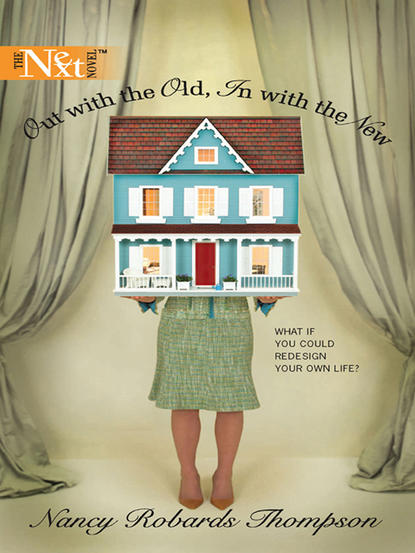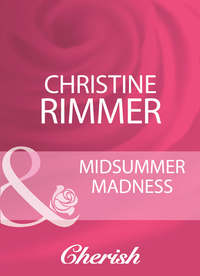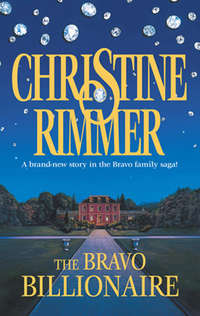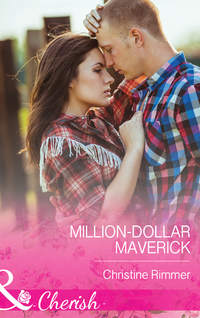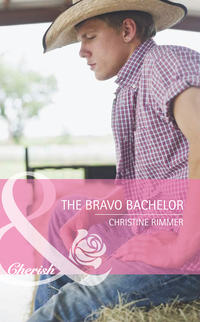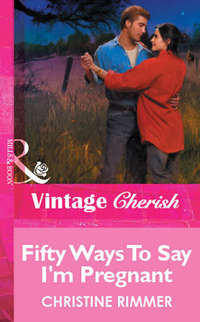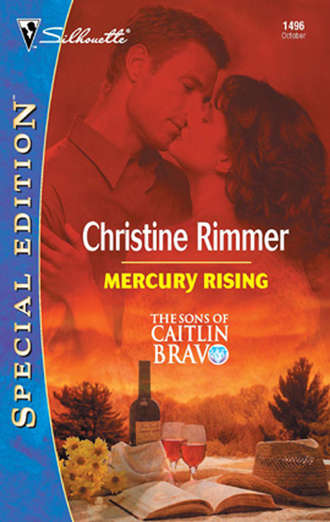
Полная версия
Mercury Rising
She had no reply for that. He was right. They both knew it. “Look. I mean it. I’d like you to leave now.”
“Fine.” He gathered those long legs up and stood.
She stepped back, clear of him. His body could not be allowed to touch hers—even accidentally, in passing.
He gave her a look that burned and chilled at the same time. “I suppose you want me to go out like I came in. Through the back. That way, there’s less chance someone might see that I was in here, less chance your mother might hear about it.”
She drew herself up. “The implication being that my mother somehow runs my life?”
“Admit it.” His voice was way too soft. “You don’t want her to know I was here.”
It was Jane’s turn to shrug. “Okay. It would make it easier on me if she didn’t know—which is a very good reason for you to go out the front.”
He frowned. “I don’t get it.”
“I invited you in here. I’m not ashamed that I did. If my mother finds out, well, okay. She finds out.”
“She hates me—hates all us bad Bravos. You know that, don’t you?”
She did. “My mother is difficult. Her life didn’t work out the way she would have liked it to. She has a tendency to take out her disappointments on others. It’s sad, really. She needs love so much, yet she’s always pushing people away.”
He wore a musing look. “You surprise me.”
“Because I know my own mother?”
“I guess. I had you pegged differently, when it came to her.”
“Maybe you had me pegged wrong.”
“Maybe so.”
“The point is, I’m a grown woman. I’ve done nothing wrong here. Neither of us has. And I won’t live like a guilty child.”
He studied her for a moment, then he let out a hard breath. “Whatever. But I still think it’s best if I just leave through the back.” He started to move past her.
“Wait.” She reached out. He froze, his eyes daring her. She continued the movement, lifting her reaching hand to smooth her hair. The gesture didn’t fool either of them. She had almost touched him, had stopped herself just in time.
She dropped her hand. “This way.”
“Hey. Relax.”
“You’ll go out the front.”
He seemed amused. “Is that an order?”
“Just a statement of fact.”
“Okay, no problem. I can find the door myself.”
“No. I will see you out.”
He looked her up and down, his gaze sparking heat everywhere it touched. “So damn well brought up, aren’t you, Jane?”
Was that supposed to be an insult? “Yes, I am.”
She turned for the open doorway, but instead of going straight, into the family room, she went left, entering the central hall. He came along behind. It seemed to take a very long time to reach the front door.
But at last, they were there. She grabbed the door handle and pulled the door wide, unlatching the screen, pushing it open. He went through, out onto her porch, down the steps, into the sun that found the gold in his silky hair and reflected off his white T-shirt, so that she blinked against the sudden blinding brightness of just looking at him.
At the bottom of the steps, he paused and turned to her. “Thanks. For the iced tea.”
He hadn’t taken so much as a sip. “You’re welcome.”
“I’ll have to think about this. What you said. What you meant.”
“Don’t. Please. Just let it go.”
He looked her up and down again, as he had done back in the kitchen, slowly, assessingly, causing heat to flare and flash and pop along the surface of her skin, making that heaviness down in the center of her, that willingness in spite of her wiser self.
“You probably shouldn’t have invited me in.”
It had seemed the decent thing to do. “Maybe not,” she confessed.
He turned, took a few more steps, then turned again, so he was walking backward away from her, not quite smiling, in that way of his. Her heart lifted. For a fraction of a second, he was only a man she found attractive, walking away from her, but reluctant to go.
“Pretty,” he said, reaching out his left hand, brushing the surface of one of the gleaming glass spheres tucked among the cosmos. The gold bracelet he always wore caught the sunlight and winked at her.
She smiled at him.
He saluted her, the way he had that morning, two fingers briefly touching his forehead. Then he turned toward the street again and continued down the walk.
She closed the screen and shut the door and told herself that whatever he hinted at, nothing would happen. She’d ended it before it had a chance to begin.
Chapter Four
C ade left town sometime the next day.
When Jane got home from the bookstore Monday night, his house was dark. The green Porsche was nowhere in sight. At a little after noon, on Tuesday, Jane spotted Caitlin on Cade’s porch, picking up the mail and papers as she always did whenever he went away.
Wednesday, at a little before five, Gary Nevis dropped in at her store. He bought a book on western wildflowers and asked her to have dinner with him Saturday night.
She looked into his handsome, friendly face and felt like crying. He was just what she was looking for. Except for one little problem. He didn’t fill her fan tasies.
And he never would. That thing, that spark, that whatever-it-was. With Gary, well, it just wasn’t there.
In the back of her mind, Cade’s taunts echoed, You run into any steady men, any true, good men? You dated a few of them, those good guys, those solid guys? So what happened? How come you’re not with one of them now?
She turned Gary down, softly and firmly. She could see in his eyes that he understood the extent of her refusal. He wouldn’t be asking again.
She’d already been feeling low. After that, she felt lower still.
She arrived home at a little after nine that night. The house next door remained dark. No green Porsche crouched at the curb.
Jane went to bed around ten, drifted off to sleep and then woke at a little after three. She lay there, staring into the darkness, until she couldn’t bear it for another second. Finally she gave in. She got up and looked out the window.
Big surprise. His house was dark. She went back to her bed and turned her pillow over to the cool side. She punched it to fluff it a little. Then she resolutely closed her eyes.
Sleep was a long time coming. Sometimes her mind could be every bit as unruly as her hair.
Thursday at four Jane held her biweekly Children’s Story Hour. She had a presentation area in the rear of the store, with a mishmash of chairs and benches—and also with a lot of plump pillows in the corners for folks who preferred to sit on the floor. She held the story hour there, as she did the various readers’ groups she hosted, the occasional musical evening and any speaker or workshop events.
As it turned out, the story hour was just what she needed. She read some Dr. Seuss and a little Shel Silverstein and then a few chapters from Charlie and the Chocolate Factory.
Her heart lifted as she looked out over the small, wide-eyed faces, and she felt a smile breaking through the gloom that had been dogging her since she told two men no—one she wanted and one she didn’t, one who was all wrong and one who was just right. Reading to the kids always raised her spirits, brought hope to life again.
Someday, she would find the right guy. She would marry again, this time well and wisely, marry a man who not only turned her bones to water, but who also loved and respected her, a man who would never hurt her, a man who wanted children as much as she did.
Jillian Diamond came bouncing into the bookstore at a little after six on Friday.
Jillian had her own business, Image by Jillian. She taught her clients how to dress for success. She also wrote a column, “Ask Jillian,” for the Sacramento Press-Telegram. She’d already spoken at Jane’s store once, back in March. Lots of folks showed up and Jillian had really wowed them. She was funny and she had some quirky and fascinating ideas. Jane had prevailed on her to do it again.
For her talk this time, Jillian wore a short, sleeveless, fitted sheath in a geometric print and a pair of white patent go-go boots. Her gold-streaked brown hair curled loosely around her arresting face. Her gray eyes sparkled beneath those startlingly dark, thick brows.
“Janey, I made it. Have to tell you, though, I had my doubts. What is it with Highway 50, anyway? Is there ever a time when half the lanes aren’t blocked off for repairs?”
“Sure. That would be in the middle of winter, when all the lanes are closed due to ice and snow.” They hugged.
Jillian smelled of her favorite perfume, Ralph Lauren’s Romance, and also of Cheez Doodles. She was carrying an open bag of them. She stepped back from the hug and popped one in her mouth, then held out the bag to Jane.
“No, thanks.”
“I stopped by the house and left my suitcase and stuff.” Jillian gobbled more Cheez Doodles. Jane wondered how she did it. Jillian ate whatever she wanted and she never worked out and she weighed just what she’d weighed the day they graduated from New Venice High—which was about one-fifteen, soaking wet. In go-go boots.
“Oh, I am starving,” said Jillian. “And I’m in a burger kind of mood. Let’s go next door.”
Next door. To Caitlin Bravo’s place.
“To the Highgrade?” It came out sounding grim, though Jane truly hadn’t meant it that way. Really, there was no reason to avoid the place. Cade wouldn’t be there. He wasn’t even in town.
“Janey. Sometimes you are a total food snob.”
“I am not. I love a good burger as much as anybody.”
“Then what is the hang-up here?” Jillian slid a glance at Madelyn, Jane’s clerk, who was busy ringing up a sale at the register. Then she leaned close and whispered, “A Mommy Dearest issue?”
“No, nothing like that.” Until the day Jane turned eighteen and eloped with Rusty, thus declaring her independence from Virginia Elliott in a very big way, she never would have dared to upset her mother by entering Caitlin Bravo’s place of business. But all that was years ago. Now, Jane ran her own life and allowed no one to tell her where she could or couldn’t go. She often headed over to the café next door for a sandwich—or she used to, until recently, when she’d become increasingly worried she might run into Cade there.
Jillian’s thick brows were all scrunched up. “Well if there are no, er, family issues involved and you love burgers, why not?”
“Good question.” Jane tried to sound breezy. “If you want to eat there, it’s fine with me.”
Jillian stepped up to the register and offered the rest of her Cheez Doodles to Madelyn. “Enjoy.” She brushed the orange dust from her hands and turned back to Jane. “Let’s go.”
Caitlin was there to greet them. “Well, look who’s here.” She emerged from behind the cash register counter in the Highgrade’s central game room. “What’s up?”
Jillian told her. “I’m speaking next-door at Jane’s tonight.”
“Speaking of what?”
“Having It All and Loving It. How to Please Both Yourself and Your Man.”
Caitlin chuckled her low, naughty-sounding chuckle. “Well. I’d say that about covers everything.”
“Drop over if you get a chance.”
“Sweetie, I just might take you up on that—and right now, I suppose you two want to eat?”
“You bet.” Jillian’s eyes were shining. “I’m starved. For a bacon and Swiss burger, I think. With onion rings and a chocolate shake—but I’ll have a look at the menu, just in case something else jumps out at me.”
Caitlin’s false eyelashes swept down. When she looked up again, it was straight at Jane. “We’ve missed you around here lately.”
“Oh, well, things have been really busy.”
“I’m still counting on you to do your story lady gig at the picnic Labor Day.” The Labor Day picnic was an annual event in New Venice. The town merchants went all out for it. There were horseshoes and shuffleboard, live bands, beer on tap for the grown-ups, a clown show and face-painting booth for the kids—among other things. Caitlin was heading up the picnic committee this year.
“I’m looking forward to it.”
“Good. And don’t be a damn stranger. You can drop in for a sandwich anytime and be back at your store in twenty minutes flat. I will personally expedite your order.”
“Thank you. I’ll remember that.”
“Don’t thank me. Just come around more often.”
“Yes. I will. Honestly.”
“This way.” Caitlin led them through the open doorway to the café and straight to a corner booth. She gestured at the big laminated menus, which were tucked upright between the sugar dispenser and the napkin holder. “Have a look.” The orange sequins on her tight black shirt glittered aggressively with every breath she took. “I’ll send Roxy right over.” She strutted off.
Jillian picked up her menu and spoke from behind it, out of the corner of her mouth. “God. Best butt I’ve ever seen on a woman over forty-five.”
Jane whispered back. “She is one of a kind.”
“And I swear, she’s a 38-D. Just like you. And not saggy, either.”
“Fascinating,” said Jane dryly. “What are you having?”
“I’m looking, I’m looking….”
“Right.” Jane studied her menu, which had a knotty-pine fence on the cover—no doubt to go along with the Highgrade’s extensively knotty-pine decor. Inside, a cartoon miner with a big hat, baggy old jeans and a pickax slung over his shoulder, grinned and pointed at the various menu selections. “The club sandwich is always good.”
Jillian wasn’t listening—or looking at the menu. “I don’t see the Viking Hunk.” The Viking Hunk was Caitlin’s on-again, off-again lover, Hans. He was about Cade’s age, had long blond hair and looked like he’d walked right off the cover of a steamy romance novel.
Jane shrugged. “You’re right. Hans hasn’t been around lately. I think I heard he’s left town again.”
“Ah, the course of true love never did run all that smooth.”
“Here comes the waitress. Quit mangling Shakespeare and figure out what you want.”
They ordered and the food arrived quickly. Jane concentrated on her sandwich and tried not to remember….
That engagement party Caitlin had thrown here for Aaron and Celia back at the beginning of May. The place had been packed for that. There had even been other Bravos, specifically the famous Bravo billionaire, Jonas, from Los Angeles, and his wife, Emma. Jonas was Cade’s cousin and his presence had surprised every one. For over thirty years, Caitlin and her sons had lived as if no other Bravos existed. But Celia—and Jonas’s wife, Emma—were working to change all that.
“Hey, Jane.” Cade’s voice had come from behind her. It was friendly, slightly teasing, nothing in the least pushy about it. Still, she felt pushed, way down inside herself. Pushed and pulled at the same time.
She’d turned and put on a smile. “Hello, Cade. How are you?”
“Doin’ okay. Did you eat yet? I was just going to go and fill myself a plate.”
“Thanks, but I’m not all that hungry right now.”
Those strange, beautiful eyes went from molten silver to ice. “Right. Not hungry.”
She spotted her excuse to escape him on the other side of the room. “Oh, there’s Jilly. I’ve been looking for her…” She left him, weaving her way quickly through the press of people, a slight shudder moving through her at the thought that might follow her, perhaps become more insistent….
But he didn’t.
And then, a few weeks ago—she’d seen him in here again. He’d been in the game room, kind of lounging against the wall, chatting with Donny Verdun, who ran the convenience store at the corner of State and Main. She’d tried to slide on into the café without him spotting her.
But no such luck.
Two minutes after she sat down, there he was, standing by her booth, asking her how she’d been doing, those eyes of his looking into hers, telling her things his mouth wouldn’t dare say.
She’d come very close to rudeness that time, insisting she was in a hurry. Could he please send the waitress over right away?
“Sure, Jane. I’ll do that.” And he was gone.
She’d felt small and mean then—and strangely bereft. After that, she’d decided maybe it would be better if she stopped eating at the Highgrade for a while.
“Yoo-hoo, Janey. Are you there?”
She blinked and looked down at her hands. At some point, she had picked up the tube of paper that had covered her straw. She was wrapping it absentmindedly around her index finger. “What?” She yanked off the flattened tube of paper and dropped it on her plate beside her half-eaten club sandwich.
“You should see your face. Dreamy.” Jillian set down her milkshake and leaned in close. “There’s someone, isn’t there? At last, after all these years. Come on. Tell Jillian. Who is he?”
“Oh, Jilly. Eat your Swiss and bacon burger. We can’t sit here all night.”
Later, back at the bookstore, Jane kept half expecting Caitlin to walk in. But she never appeared.
Jane closed up at ten. She’d walked to the store that morning. Since Jillian, who never walked anywhere if she could help it, had driven over from the house in the afternoon, Jane rode home with her.
They stayed up till a little before two, drinking wine at first and then switching to herbal tea around midnight.
They talked about the things they always talked about. The bookstore. Jillian’s career. Celia.
“I called her last Saturday,” Jane reported. “She sounded great. I forgot to ask her about the Labor Day picnic, though.”
“Where you are playing story lady, right?”
“Right. I know Aaron’s helping out, hiring the bands for it. But I still don’t know if he and Celia are planning to be here for it—and how about you? Will you come this year?”
“Yeah. I could probably be here. I’ll let you know.”
The next morning, Jillian slept in.
Jane had to open the store at ten, so she was up at eight. She sat at her kitchen table with the morning sun pouring in the bay window and sipped her coffee and told herself that life was good.
And maybe Cade would stay away for weeks this time, the way he used to, back before his house was finished.
She smiled a sad little smile and sipped more coffee. Yes, that would be good for her. It really would. But whether he stayed away or not, she would get over this impossible, unhealthy attraction. No doubt about it. It was only a matter of time.
Jillian left early Sunday morning.
And Jane’s mother called. “Hi, dear. How about church?”
“I’d love it.”
“Why don’t we just meet there?” Virginia suggested. “I’m running a little late.”
When Jane left the house, she saw Cade’s powerful green car parked at the curb next door.
He was back.
Her heart felt like something was squeezing it. Then it started beating way too fast.
Get over it, she told herself as she got in her van and started it up. He lives here and he’s going to be here a lot of the time. Accept it.
And forget him.
“How about a sandwich and some iced tea at my house?” Jane offered, as she and Virginia walked down the church steps toward the cars waiting at the curb.
“Wonderful,” said Virginia.
Her mother followed her home.
The first thing Jane noticed when she turned onto her street was that the green Porsche was gone again. Good. She got out of her van and waited for Virginia to park.
They started up the walk together.
Jane saw the object on the porch—on the mat, right in front of the door—at about the same time her mother did.
“Jane. What is that?”
Jane didn’t answer. She walked a little faster. Soon enough, they both stood on the porch, looking down at it.
Virginia said, “Why, it’s so beautiful. It looks like an antique.”
“It is an antique,” Jane said softly, staring down at the gorgeous thing. “I’m almost certain of it. An antique mercury glass gazing ball and vase, in one.” The silvery-gold ball sat on a central glass platform, with a clever little trough all around it where the flowers would go.
“A gazing ball? Like the ones in your garden?”
“Not quite,” Jane said dryly. “My guess is that this is the real thing.”
“The real thing. How so?”
Jane gestured toward the gazing balls that gleamed among the cosmos along her front walk. “Those you can find in just about any garden shop. They’re made of a single layer of glass treated with some sort of transparent opalescent paint.”
“And this?”
“It’s an old technique. They would flow real mercury between two layers of glass. They don’t make them like that anymore, though. They haven’t in decades.” Jane had read about such treasures in the various books on rare glassware she kept in her store. She couldn’t resist. She had to know for certain. “Here. Hold these a minute, will you?” She handed her mother her keys and her small purse. Then she knelt and oh-so-carefully slipped her fingers beneath the vase.
“Yes.” She grinned.
“Yes, what?” Virginia demanded.
“I can feel the stopper underneath. They would have to use a stopper, to hold in the mercury.” She lifted it. “And it’s heavy. Mercury is heavy. That means it still has its original filling.”
Her mother was frowning at her. “It’s filled with real mercury?”
“That’s right. And that’s very rare. Most of the old pieces like this have been drained, with reflective paint injected in the mercury’s place.”
“Better not drop it,” her mother said warily. “Just what we need. Mercury all over the place.”
“I’m not going to drop it.” So beautiful, Jane thought. She stood again, carefully, cradling the precious vase close to her body.
“Who could have left it here, do you think?” Virginia was intrigued—and suspicious, too.
Jane shrugged and made a noncommittal noise, evading her mother’s question, coming perilously close to telling a lie.
Because she knew very well who had left it there. If she closed her eyes, she could see him now, walking backward down the walk, the sun gleaming golden in his hair, reaching out to brush those long fingers across one of the shining globes tucked among the flowers.
“Jane?” her mother prompted. “I asked who would leave something like this on your front porch.”
Jane considered telling her mother the truth. But it would only be inviting more questions—not to mention an excess of outraged noises at the very idea that Cade Bravo would dare to offer expensive gifts to Virginia Elliott’s only daughter.
She settled for shrugging again. “Open the door, Mom. Let’s go inside and I’ll make our lunch.”
Chapter Five
J ane set the golden vase carefully on the narrow table near the front door.
“It must be valuable,” Virginia said.
“Yes, I’m sure it is.”
They both stood back for a moment, admiring it. It reflected light so beautifully, with the shiny golden surface—veined in places, after years and years—and that layer of quicksilver trapped beneath. It seemed almost magical, managing somehow to be opaque and transparent and reflecting all at once. It was all curves, too, distorting in a fascinating way what it mirrored, so that, staring into it, Jane’s entry hall became a strange and fantastical otherworldly place.
“And you don’t know who left it on the front mat?” Her mother sent her a quizzing, narrow-eyed look.
Jane made another noncommittal sound.
“That means you know, but you’re not telling,” said Virginia, her tone accusing now.
Jane gave her mother a smile. “Lunch will only take a few minutes. Let’s go on in the kitchen.”
They ate at the oak table by the bay window. Twice more, Virginia tried to pry from her daughter the name of the person Jane believed had left the vase. Finally Jane decided she’d had enough.
“Mom, by now you must have gotten the message that I don’t want to go into this. I’d appreciate it if you’d just leave the subject alone.”


